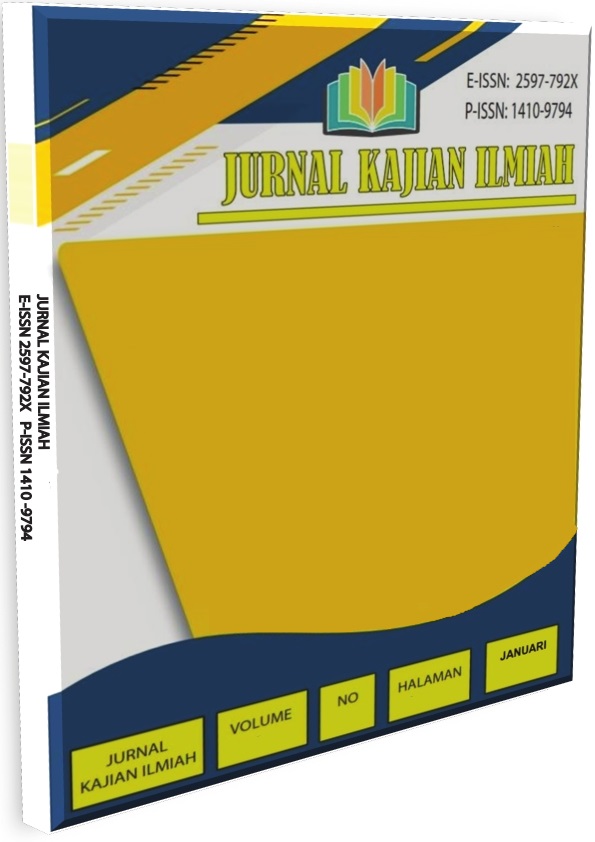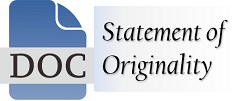Keanekaragaman Jamur Makroskopis di Kawasan Hutan Universitas Palangka Raya Kalimantan Tengah
DOI:
https://doi.org/10.31599/hazg7p13Keywords:
Biodiversity, Fungi, MacroscopicAbstract
Macroscopic fungi comprise a very diverse group of heterotrophic and mostly saprophytic organisms. This research purpose was to identify the diversity of macroscopic fungi from the forest of University of Palangka Raya. The fungi samples were collected from May until June 2021 using purposive sampling method. The samples were identified based on macroscopic characters such as the form of fruiting bodies, lamellae, cap shape and colours. There were 18 species of Basidiomycota which consist of 9 famili and 12 genera. The species were identified as Agrocybe sp., Auricularia sp.1, Auricularia sp.2, Collybia sp., Dacryopinax spathularia, Ganoderma sp.1, Ganoderma sp.2, Ganoderma sp.3, Hygrocybe sp., Marasmiellus sp., Mycena sp.1, Mycena sp.2, Pycnoporus sanguineus, Schizophyllum commune, Trametes sp.1, Trametes sp.2, Trametes sp.3, and Tyromyces sp. Descriptions of each species were provided.
Downloads
References
Annissa, I., Ekamawanti, H. A., & Wahdina. (2017). Keanekaragaman Jenis Jamur Makroskopis di Arboretum Sylva Universitas Tanjungpura. Jurnal Hutan Lestari 5(4): 969-977.
Darwis, W., Desnalianif, & Supriati, R. (2011). Inventarisasi Jamur yang dapat Dikonsumsi dan Beracun yang Terdapat di Hutan dan Sekitar Desa Tanjong Kemuning Kaur Bengkulu. Konservasi Hayati Vol. 7 (02): 1-8.
Hapuarachchi, K., Karunarathna, S. C., McKenzie, E., Kakumyan, P. (2019). High Phenotypic Plasticity of Ganoderma sinense (Ganodermataceae, Polyporales) in China. Asian Journal of Mycology 2(1): 1-47.
Hasan, A. M., Mardin, H., Alfiani, D., Syahri,l L. M. Y., Panyilie, N. F., Iman, R., Lasangole, S., & Mardjun, S. F. (2022). Diversity of Macroscopic Fungi in the Lombongo Tourism Park Area Gorontalo Province. Jurnal BioLink 8(2): 152-158.
Ho, L., Zulkifli, N. A., & Tan, T. (2020). Edible Mushroom: Nutritional Properties, Potential Nutraceutical Values, and Its Utilization in Food Product Development. An Introduction to Mushroom.
Lingga, R., Dalimunthe, N. P., Afriyansyah, B., Irwanto, R., Henri, Januardi, E., Marinah, Safitri. (2021). Keanekaragaman Jamur Makroskopik di Hutan Wisata Desa Tiang Tarah Kabupaten Bangka. Bioma: Jurnal Ilmiah Biologi 10(2): 181-200.
Nurlita, A. I., Putra, I. P., & Ikhsan, M. (2021). Catatan Pemanfaatan Schizophyllum commune di Kampung Udapi Hilir, Papua Barat. Integrated Lab Journal Vol 09(01).
Putra, I. P., Amelya, M. P., Nugraha, N. H., Zamia, H. Z. (2019). Notes of Some Macroscopic Fungi at IPB University Campus Forest: Diversity and Potency. Biota: Biologi dan Pendidikan Biologi 12(2): 57-71.
Retnowati, A., Rugayah, & Rahajoe, J. S. (2019). Status Keanekaragaman Hayati Indonesia Kekayaan Jenis Tumbuhan dan Jamur Indonesia: LIPI Press.
Sadono, Agus. (2018). Keanekaragaman jenis (species) Tumbuhan Paku di Area Kampus UPR Palangka Raya. Jurnal Hutan Tropika 13 (2): 63-76.
Setiorini, J. I., Astiani, D., Artuti, H. (2018). Keanekaragaman Jenis Jamur Makroskopis dan Karakter Tempat Tumbuhnya pada Hutan Rawa Gambut Sekunder di Desa Kuala Dua Kabupaten Kubu Raya Kalimantan Barat. Jurnal Hutan Lestari 6(1):158-164.
Sullivan, G. & Henry, E. D. (1971). Occurrence and distribution of phenoxazinone pigments in the genus Pycnoporus. J Pharmaceutical Sci 60:1097–1098. https://doi.org/10.1002/jps. 26 00600725.
Susan, D., Fastanti, F. S., Sutkino, S., Supriyanti, Y., Robiah, Y., Ariasari, N. (2021). The Genus Pycnoporous in Indonesia. Floribunda Vol 6 (7).
Rizki, M., Wardhana, V. W., Mawardin, Sunariyati, S. (2021). Diversity of Semar Pockets (Nepenthes sp.) at Palangka Raya University. Bioeduscience 5(2): 159-165.
Téllez-Téllez, M., Villegas, E., Rodríguez, A., Acosta- Urdapilleta, M. L., O’Donovan, A., & Diaz- Godínez, G. (2016). Fungi of Pycnoporus: morphological and moleculer identification, worldwide distribution and biotechnological potential. Mycosphere Essay 11: 1–26. https:// doi.org/ 10.5943/mycosphere/si/3b/3.
Wati, R., Noverita, Setia, T. M. (2019) Keanekaragaman Jamur Makroskopis di Beberapa Habitat Kawasan Taman Nasional Baluran. Al Kauniyah 12(2):171-180.
Wibowo, S. G., Mardina, V., & Fadhliani. (2021). Eksplorasi dan Identifikasi Jenis Jamur Tingkat Tinggi di Kawasan Hutan Lindung Kota Langsa. Jurnal Biologica Samudra 3(1): 1-13.
Wu, X. L., & Dai, Y. C. (2005). Coloured illustrations of Ganodermataceae of China. Science Press.












_-_Copy1.jpg)




